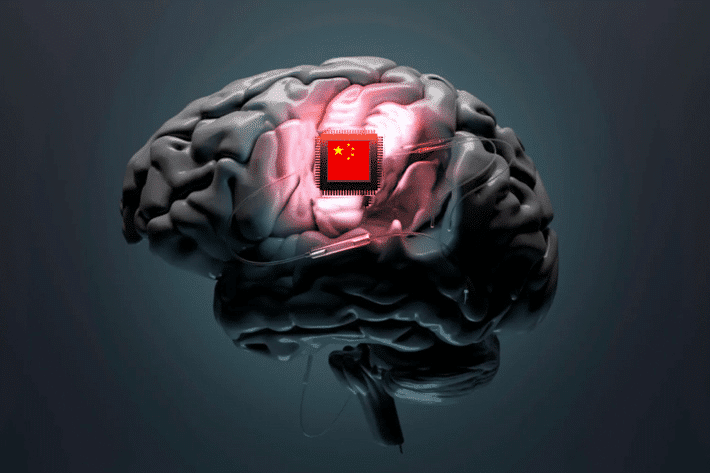The China brain chip programme has reached a major milestone, captivating scientists and tech enthusiasts. The programme demonstrated a monkey’s capacity to operate a robot using a brain-computer link. Thus, neurotechnology research has made a giant leap ahead. China has created a committee to coordinate brain-computer interface (BCI) research to dominate brain chip technology. Reportedly, to compete with Western technological organisations like Neuralink, the committee will establish national norms for development.
China has announced intentions to increase funding for its brain chip programme in response to this success. It is a statement that the country is serious about becoming an industry leader in this innovative sector. The monkey-robot experiment’s success means they are one step closer to creating cutting-edge BCIs. This might change the game in industries as diverse as technology. It may also impact the crypto community, affecting Bitcoin (BTC), Ethereum (ETH) and the wider crypto market. The BIT Journal has closely followed these developments and reports this crypto update.
Comparing China’s Progress to Elon Musk’s Neuralink
Many have compared the recent success of the China brain chip programme to those of other major participants in the industry. It is particularly compared to Neuralink, founded by Elon Musk. Elon Musk’s ambitious Neuralink implantable brain-machine interface aspirations have made headlines. A user must undergo surgery to implant Neuralink’s BCI device in their skull. According to a news source report on January 28, 2024, a Neuralink device was transplanted into a human brain. Even recently, medical issues forced Neuralink to postpone a second brain implant.
According to the crypto update, China has two goals with BCIs. The first is to become an international leader in their development. The second is to use them to improve people’s cognitive abilities. Both programmes advance brain-computer interface technology, albeit with different approaches and goals. On the other hand, China intends to use BCI for cognitive advancements. A report dubbed a Chinese experiment controversial. It claims that a gadget like Musk’s Neuralink would enable enhanced cognition.

According to Wired, “At a tech forum in Beijing … a Chinese company unveiled a ‘homegrown’ brain-computer interface that allowed a monkey to seemingly control a robotic arm just by thinking about it.” The China brain chip programme appears to adopt a more methodical approach. The brain chip programme is prioritising small improvements and real-world applications. Recent results from the monkey-robot control experiment prove that this approach works. Thus marking a definite and attainable step forward for BCI research. Although the two programmes use distinct techniques, experts agree that the China brain chip programme is making progress comparable to Neuralink.
There are intriguing parallels between brain chip development and cryptocurrency. According to experts, research into brain-computer interfaces can set a similar flurry of innovation in motion. This is analogous to the development of Bitcoin (BTC) and Ethereum (ETH), which has led to a worldwide rush for blockchain technology. Brain chip technology might impact the user interface and security of crypto. Most cryptocurrency enthusiasts monitor the BTC price and other market metrics. Conversely, investors with a longer-term perspective are considering how these events will affect the digital asset ecosystem.
Ethical Considerations of the China Brain Chip Programme and Future Implications
As the globe moves forward, important ethical problems and worries surround the China brain chip programme. Concerns about personal information security and privacy rank high among the many ethical considerations of brain chip technology. The social ramifications of cognitive enhancement and its feasibility are other sources of concern. Brain chip technology that boosts cognitive ability could create new inequity and humanity concerns.
As with comparable projects, the effort of the China brain chip programme will have to tread cautiously as it develops. Brain chip technology could impact numerous industries, including cryptocurrency. Imagine trading Bitcoin (BTC) or Ethereum (ETH) with a neural interface to blockchain networks.
Brain-computer interface work has advanced with the China brain chip programme. The ETH and BTC price market trends may take centre stage on a daily basis. However, the crypto community must not overlook the possible long-term effects of brain chip technology. As we advance, it will be essential to weigh the fascinating potential of brain-computer connections against serious ethical concerns. The BIT Journal watches closely for advancements and possible implications on BTC price and the entire crypto market.





























